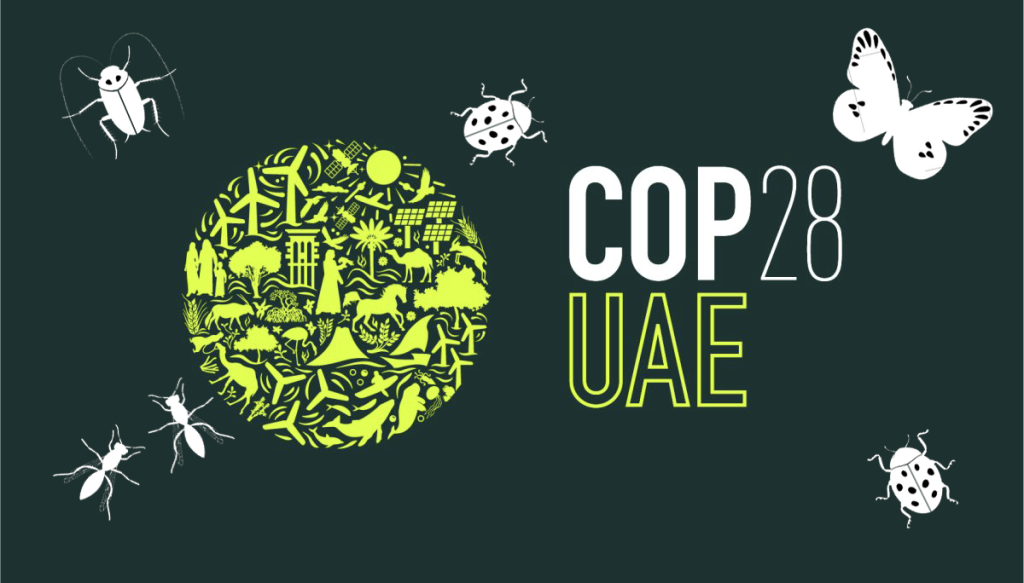In the ludicrous oil-rich city of Dubai, where the towering skyscrapers touch the smog-filled sky, and the cacophony of honking horns and distant sirens fill the air, a rather unconventional protest is underway. In the midst of the grandiose COP28 conference, where world leaders gather, yet again, to discuss the fate of the planet, a swarm of insects have assembled outside Expo City, armed with tiny picket signs and a buzzing determination.

Led by the global insect union Hexapoda, they have rallied what is left of the invertebrate species from all corners of the globe – bees, flies, wasps, butterflies, beetles, and even a few rebellious crickets have either flown, scuttled or hopped in. Their demands are simple: an end to pesticide use, protection of natural habitats, and recognition of insect rights in international law. Their slogans, chanted in unison, are a high-pitched symphony of discontent.
Inside the conference halls, the atmosphere is filled with well-intentioned speeches and promises, each trying to outdo the other with pompous pledges and commitments. The delegates pay lip service to saving endangered species, and protecting ecosystems, blah, blah, blah, even though in the real world, forests are still being decimated, the urban sprawl is expanding, the air is thick with toxins and the dwindling water supply full of sewage.
Amidst closed-door negotiations, a different dance unfolds – one where haggling and bargaining takes centre stage, often prioritising short-term economic gains at the expense of the planet’s long-term health. Beneath the surface of global cooperation lies the subtle art of greenwashing, as self-interest masquerades as a genuine commitment to sustainable practices.
Hexapoda, fuelled by a mix of desperation and determination, decided to send a brave group of representatives to infiltrate the conference. A team of earwigs, dragonflies, and shield bugs embarked on their mission, crawling through the shadows to the main auditorium and onto the podium.
They begin by chirping their role as unsung heroes, vital to the global ecosystem – pollinators, waste decomposers, soil purifiers, and maintaining the delicate balance of nature – arguing that excluding them from the climate talks spells doom for the planet. But before they could finish, a giant hand swooped down and swatted the insects away. The conference attendees scarcely register the disruption, engrossed in annual discussions about carbon emissions, renewable energy, and cutting oil and gas that seldom materialise into action. The buzzing on the podium is dismissed as a minor annoyance, the insect protest relegated to insignificance. A real cop out.
Undeterred by the dismissive response, the insect delegation regroups outside Expo City. Hexapoda, resilient and united, comprehends the enormity of their uphill battle. The conference halls may have stifled their protests, but the struggle for insect rights and environmental justice persists. As night blankets the city, they press on, their tiny picket signs illuminated by fireflies – a persistent commitment to be seen and heard. The high-pitched humming reverberates through the streets of Dubai, drawing the gaze of curious onlookers and passersby.
In the face of relentless indifference, they hope that their unwavering buzz will one day permeate the corridors of power, sparking substantive change for the planet they call home.
